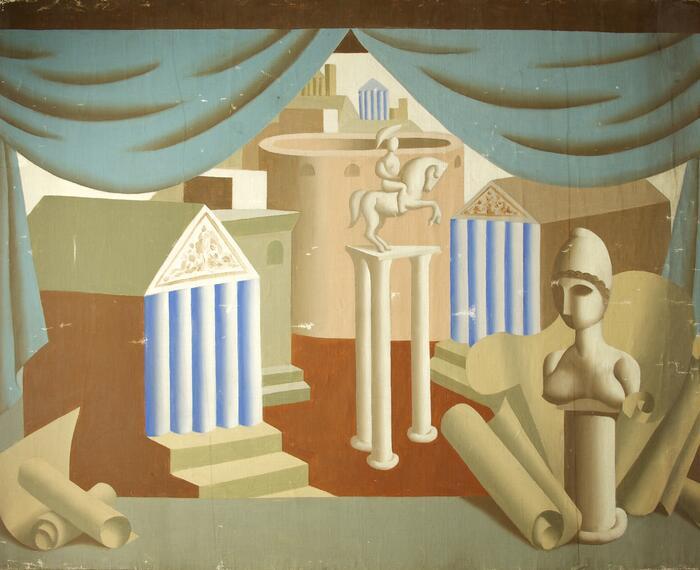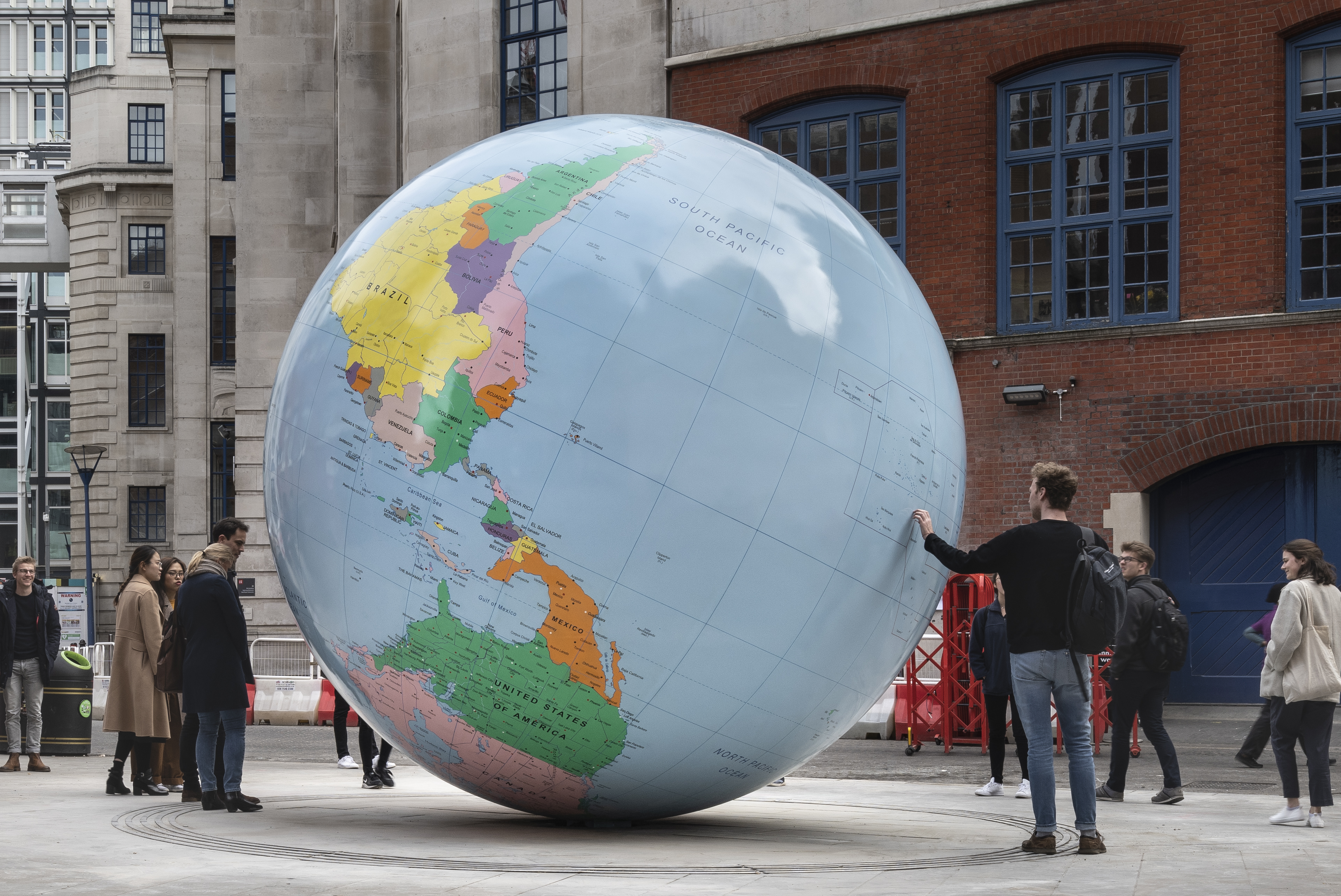


*Consultancy worked with LSE and Turner Prize-winner Mark Wallinger to create a new signature artwork for the School’s Saw Swee Hock Student Centre, the first permanent public work by the artist for London.
The World Turned Upside Down is a large political globe, four metres in diameter, with nation states and borders outlined, but with the simple and revolutionary twist of being inverted. Most of the landmasses now lie in the ‘bottom’ hemisphere with the countries and cities re-labelled for this new orientation. What is clear at this scale, and on a globe – rather than the flat rectangular Mercator projection we are used to seeing – is the scale of Africa in comparison with the other continents, and the vastness of the oceans.
Recognising LSE’s expertise as a specialist university, with an international community and a global reach, Wallinger has created the work to reflect the spirit of progressive enquiry that has characterised the School since its inception. LSE has a truly international student body, with 70% coming from outside the UK and 150 nations represented.
The World Turned Upside Down' is a ballad from the English Revolution. It was used as the title for Christopher Hill’s classic account of radical underground movements from that time, and Leon Rosselson’s song in tribute to Gerrard Winstanley and the ideals of the Digger Community: ‘When once the earth becomes a common treasury again, as it must … then this enmity of all lands will cease, and none shall dare to seek dominion over others, neither shall any dare to kill another, nor desire more of the earth than another.’ Gerrard Winstanley 1649, The True Levellers Standard Advanced.
This commission is part of a long-standing collaborative relationship with LSE that started in 2006, when *Consultancy commissioned Richard Wilson and Joy Gerrard’s sculptures for the LSE’s New Academic Building.